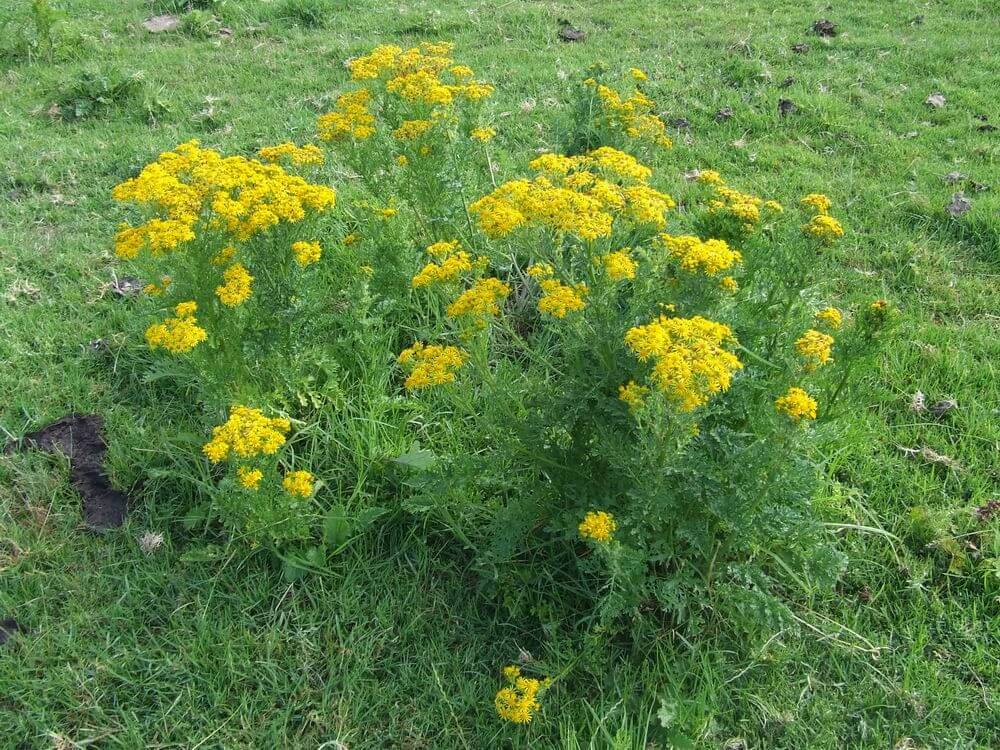Notman Pasture Seeds has put together a small guide on controlling Ragwort in southern Victorian pasture such as Gippsland and south-west Victoria. Ragwort growing cycle and how to identify Ragwort, if left undisturbed, follows a distinctive two-year life cycle. In the first year, after most seeds germinate during autumn, the plant forms a low cluster of leaves near the ground, known as a rosette. By the second year, it grows upright, reaching heights of up to 1.5 meters. During this phase, it features twisted dark green leaves and vibrant yellow flowers that cluster at the ends of small branches, giving it a characteristic flat-topped appearance. However, in pastures, ragwort often exceeds this two-year life span due to interactions with grazing […]
Category: Weed & Pest Advice
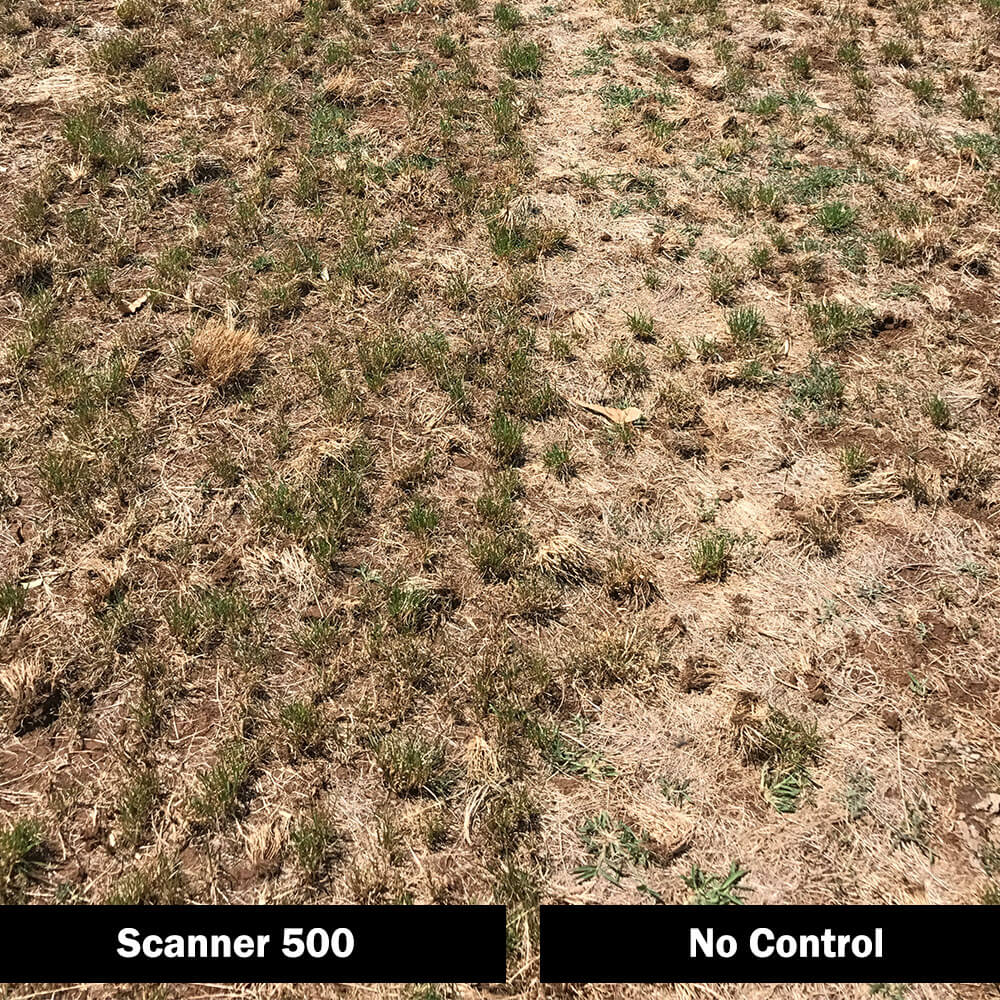
Combating winter grass in perennial pastures
As we move into late autumn and early winter, a range of winter grasses and broadleafed weeds begin to germinate in our pastures. Light green in colour with tufted growth habit and seeding from late winter throughout spring and early summer, Poa Annual matures quickly and seeds profusely making them an agressive weed difficult to control. Grazing or mowing is ultimately ineffective in their control as they begin to choke up your pastures. Preventing winter grass establishment is a key component in maximising the performance or your pastures. As you can see by the images below: WINTER GRASSES TRIAL Using Scanner 500 herbicide, Notman Pasture Seeds trialed its effectiveness on winter grasses last season here at Larnder. As you can see there […]
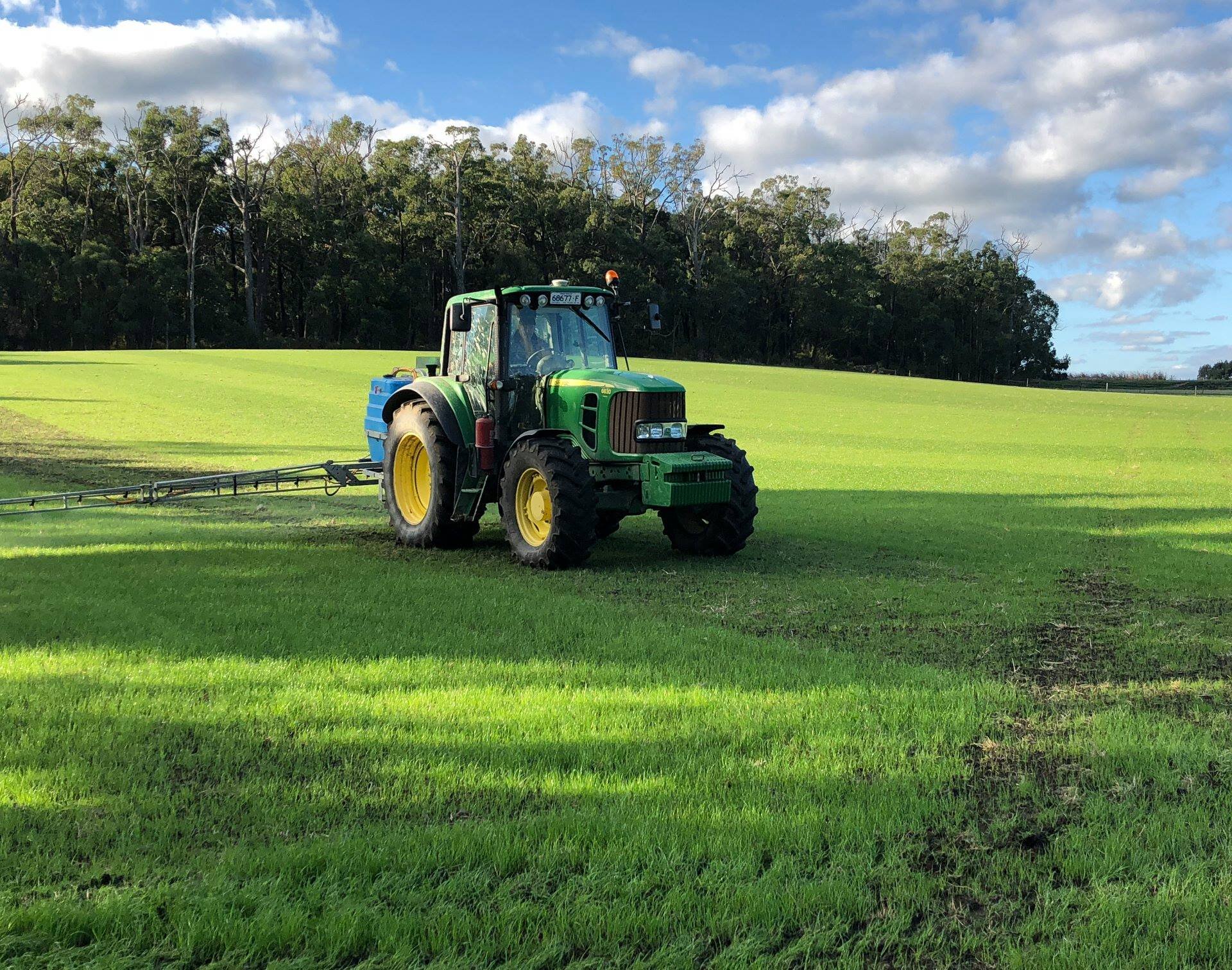
Weed control in new pasture
Weed Control in Pasture – the importance of controlling weeds early. Planning a weed control programme for new grass will help you grow strong, healthy and persistent pasture. TOP TIPS IMPACT Short term: Seedling weeds vigorously compete for nutrients, moisture, light and most importantly, space. Early removal of these weeds allows for more rapid and even establishment resulting in an increased amount of dry matter for your stock. Long term: Poor establishment of newly sown pasture results in a decrease in pasture productivity and an increase in chemical costs from the extra weed control requirements down the track. PRE GRAZING Ideally, you need a herbicide that will not damage the newly established pasture while providing effective weed control. SPRAY GRAZING Spray grazing is an excellent and […]

High risk redlegged earth mite season
Did you know a spring spray is very effective in controlling REDLEGGED EARTH MITES, to prevent damaging populations emerging next autumn? Key points: Spray in spring to control autumn outbreaks Remove females before summer egg laying October 16th ideal spray date for our southern Victorian customers Wet springs, like this season, ideal conditions for populations to flourish In spring RLEM lay diapause eggs which are extremely tough, surviving hot summers, and hatching when cooler, wet conditions arrive in Autumn – often causing significant damage to new pastures. With the help of the Timerite model, a AWI funded CSIRO program, farmers can predict the best date for spring spray, to control redlegged earth mites the following autumn. FOR EXAMPLEPOOWONG: 16th OctoberLatitude:38°20′Longitude:145°44′ […]
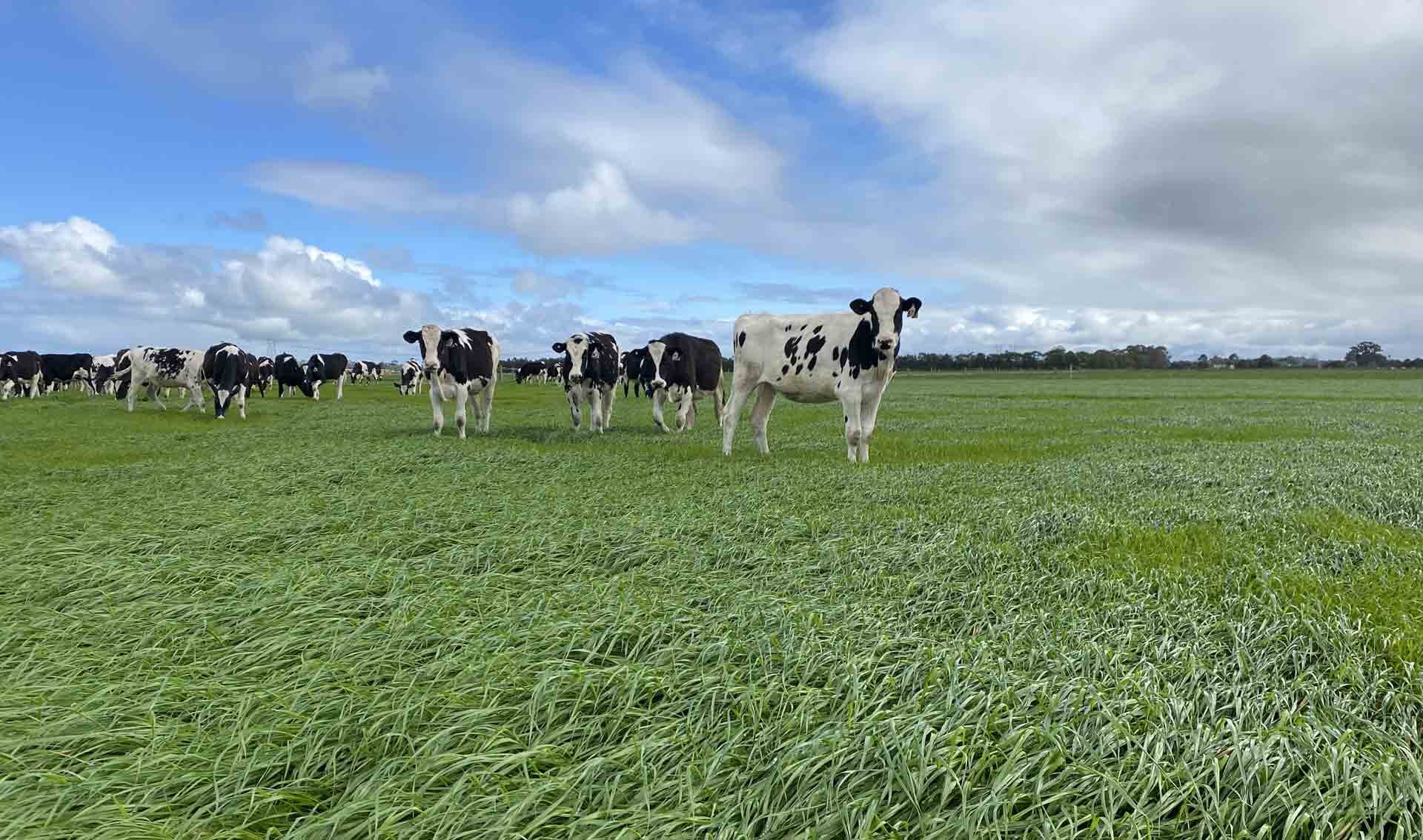
Better results from pasture renewal with a final check
Maximising autumn pasture renewal starts with optimising pasture establishment by checking for & eradicating competing weeds & grass – and this can make all the difference in success or sub-optimal establishment of new pasture. A final check of your paddocks before you spray them out this season is the first step towards establishing strong & persistent pasture. It’s an opportunity to find out what weeds are present, taking pictures if you’re unsure, and getting in touch with your local agronomy team to find out what you need to get rid of them. It often as simple as this final check. Peter Notman of Notman Pasture Seeds says even if you’re ticking all the other boxes with good variety selection, adequate soil fertility and start-up fertiliser, this final paddock check before sowing can establish the need to broaden […]
Pest protection for emerging seedlings – Insecticide Seed Treatment
Seed treatment is an effective way to protect emerging seedlings against pests, with options available for: Red-legged earth mite Blue oat mites African black beetles Aphids Cutworms Wireworms and Lucerne flea. Why use seed treatment? If you’ve encountered pasture loss in the past due to insect pressure, seed treatment is a worthy consideration. By protecting seedlings against key insects, seed treatment products help maximise plant establishment and early plant development when young seedlings are most vulnerable to pest pressure. Reducing the impact on the soil environment The active ingredient only covers the surface of each seed so that it is always located right where it is needed. The result is a reduction in the amount of chemical needed to protect […]
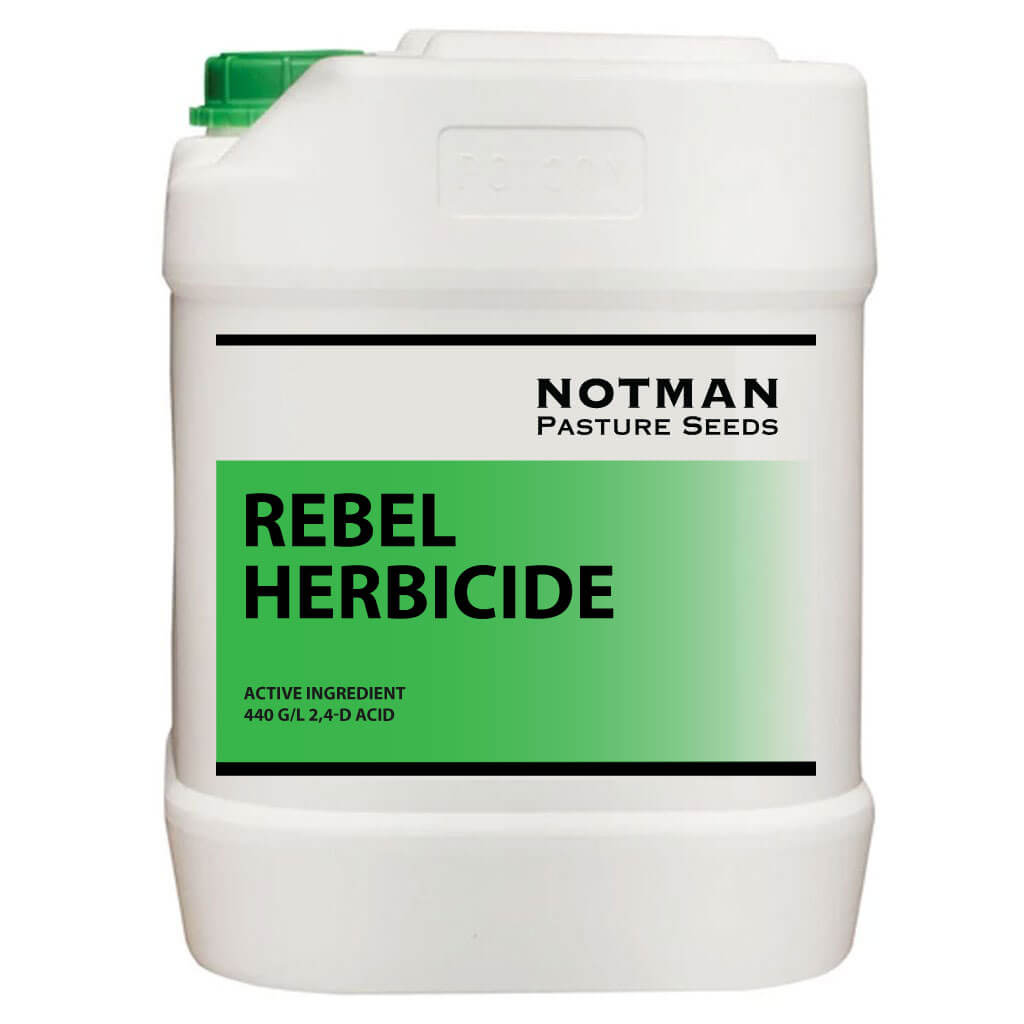
NEW REBEL low odour, non volatile 2,4-D Acid
At Notman Pasture Seeds we are excited to bring our loyal farmers REBEL Herbicide, a NEW novel safer, low odour, non volatile 24D Acid EC that can be used in place of 2,4-D Amine. We think it has it’s place in our chemical portfolio for people who are concerned about volatility, odour and herbicide efficacy – and are prepared to pay a premium for this over your standard 2,4-D. Rebel Herbicide features are: Good on hard to kill weeds Low odour compared to other 24D formulations Superior efficacy compared to Amine formulation No need to carry Ester and Amine in the shed – one drum now that can be used in either situation Compatible with Glyphosate and others Can be […]
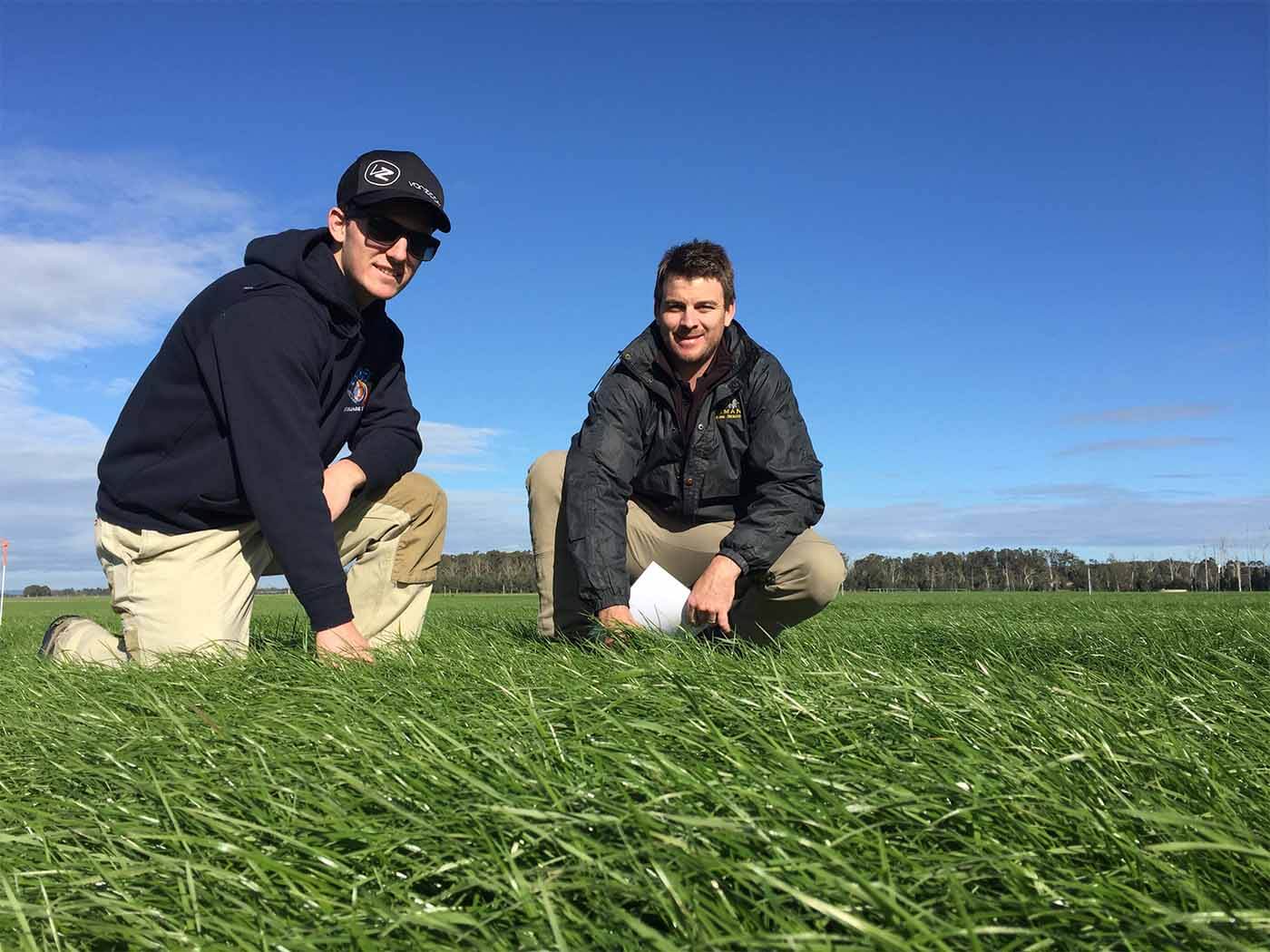
Keys to promoting winter pasture growth
Keys to promoting winter growth Permanent pasture is the mainstay of our pastures in South Gippsland, so maximising the performance of these pastures is of utmost importance. Timing is important in the establishment new pastures as overlooked opportunities & mismanagement can have severe impacts on long term pasture performance heading into late winter and spring with diminished DM/ha returns of quality feed. Walk pastures on a regular basis and assess how far away they are from the necessary grazing, fertiliser and weed/pest control. Common weed infestations include capeweed, chickweed, dock, erodium, flatweed, marshmallow, stinging nettle & thistles. It’s important to ensure herbicide grazing withholds are observed & impact to legumes such as clovers are taken into consideration. New pastures often […]

Knocking down pasture broadleaf weeds
Key time for knocking out weeds Maximising the performance of our home grown pastures and doing the small things right canlead to dry matter gains, improved production and better value for every dollar spent, soNotman Pasture Seeds have prepared some simple tips to get the most out of your pastures inlate autumn and early spring. Peter Notman of Notman Pasture Seeds said seedling weeds vigorously compete for nutrients,moisture, light and most importantly, space. “Early removal of these weeds allows for more rapid and even establishment resulting in anincreased amount of dry matter for your stock” Mr Notman said. “Poor establishment of newly sown pasture results in a decrease in pasture productivity and anincrease in chemical costs from the extra weed control […]







